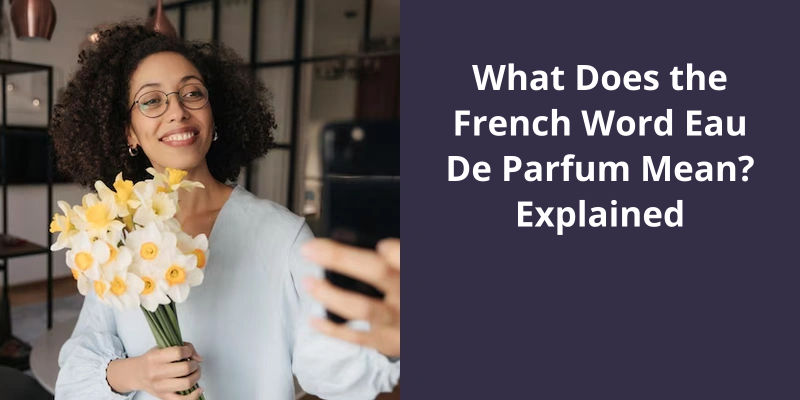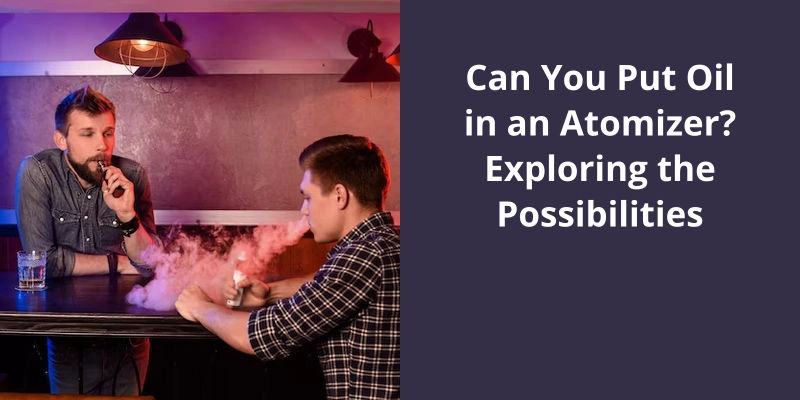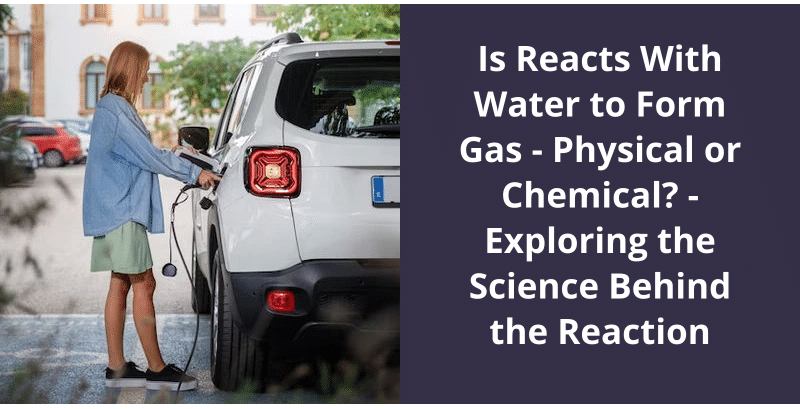The French word “Eau De Parfum” translates to “perfume water” in English. It’s a type of fragrance that’s more concentrated than “Eau De Toilette”, another type of scent that’s used directly on the skin. This means that “Eau De Parfum” lasts longer and has a stronger scent. In general, “Eau De Parfum” is made up of approximately 15-20% perfume oils dissolved in alcohol and water, making it less intense than pure perfume but still delightfully aromatic. So, when you see “Eau De Parfum” on a perfume bottle, it indicates the concentration and strength of the fragrance inside.

What Do You Use Eau De Parfum For?
Eau de parfum is a popular fragrance category used to enhance ones personal scent. It’s designed to provide a long-lasting fragrance that remains on the skin throughout the day without overpowering those around you. Unlike other perfume concentrations, such as eau de toilette or cologne, eau de parfum is specifically crafted to linger on the skin, ensuring that it’s scent remains noticeable from morning to evening.
It’s perfect for everyday wear, whether youre going to work, having lunch with friends, or attending a social gathering.
So next time you want to add a touch of luxury to your everyday routine, reach for an eau de parfum and let it’s enduring scent enchant those around you.
The Differences Between Eau De Parfum, Eau De Toilette, and Cologne
Eau de parfum, eau de toilette, and cologne are all terms that refer to different concentrations of fragrance in a perfume. Eau de parfum, which means “perfume water” in French, has the highest concentration of fragrance and typically lasts the longest. It contains around 15-20% perfume oil and is known for it’s strong scent and longevity on the skin.
Eau de toilette, meaning “toilet water” in French, is a lighter version of a fragrance with a lower concentration of perfume oil, usually around 5-15%. It’s less intense and doesn’t last as long as eau de parfum.
Cologne, or eau de cologne, has an even lower concentration of fragrance, usually around 2-4%. It’s the lightest and most refreshing option, with a shorter lifespan on the skin.
Ultimately, the choice between eau de parfum, eau de toilette, and cologne depends on personal preference and desired intensity of the fragrance. It’s important to test and experience each concentration to find the one that suits you best.
EDP, or Eau de Parfum, offers several advantages over other fragrance options. With it’s rich and deep scent that leaves a lasting trail, EDP proves to be the perfect choice for those seeking longevity, particularly lasting up to 12 hours. With a wide variety of options available, EDPs are particularly well-suited for colder weather, evening events, and any occasion where you wish to make a lasting impression.
What Is the Advantage of Eau De Parfum?
Eau de Parfum (EDP) is a type of fragrance that offers several advantages over other options. One of the main benefits is it’s richness and depth, providing a more prominent scent trail. Unlike lighter options such as Eau de Toilette (EDT), EDP lingers on the skin for a longer period of time, often up to 12 hours. This longevity ensures that you can enjoy the fragrance throughout the day without the need for frequent reapplication.
Furthermore, Eau de Parfum offers a sense of luxury and sophistication. It’s intense aroma leaves a lasting impression, making it a statement fragrance for those who want to stand out. The higher concentration of oils also means that you only need to apply a small amount to achieve the desired effect, making it a more cost-effective option in the long run.
The Difference Between Eau De Parfum and Other Types of Fragrances (Eau De Toilette, Eau De Cologne, Etc.)
Eau de Parfum is a term used to describe the concentration of fragrance oil in a perfume. It’s typically a stronger concentration than Eau de Toilette and Eau de Cologne. Eau de Parfum contains a higher percentage of perfume oil, usually between 15% and 20%, which provides a longer-lasting and more intense scent. In comparison, Eau de Toilette has a lighter concentration, usually around 5% to 15%, and Eau de Cologne has an even lower concentration, typically between 2% and 4%. The strength and lasting power of the fragrance vary depending on the concentration, with Eau de Parfum being the most potent.
Source: What’s Eau de Toilette & How Does it Compare to Other …
The English translation of the French word “parfum” is perfume.
What Is the English Translation of Parfum?
The English translation of the French word “parfum” is “perfume.”. This noun refers to a fragrant liquid substance that’s created by combining various ingredients, such as essential oils, aromatic compounds, and fixatives. Perfumes are commonly used for personal fragrance, as well as for adding scent to various products, including body lotions, soaps, and candles.
Eau de parfum typically contains around 15%-20% fragrance, making it slightly less potent than parfum. However, it still offers a long-lasting and noticeable scent.
It represents a higher concentration of aromatic compounds and is associated with a more intense and long-lasting scent.
6) the Process of Creating a Custom Perfume
- Gather all the necessary ingredients and materials.
- Decide on the scent profile or theme for your custom perfume.
- Start by selecting a base note, which forms the foundation of your perfume.
- Add middle notes to create complexity and balance in the fragrance.
- Finally, choose top notes for a refreshing and initial impression.
- Experiment with different combinations and proportions of oils until you achieve the desired scent.
- Once satisfied, carefully measure and combine the selected oils.
- Allow the perfume to mature and blend for a few weeks.
- After the maturing period, strain the perfume to remove any sediment or debris.
- Transfer the final perfume blend into a suitable container, such as a spray bottle or rollerball.
- Label your custom perfume with it’s name and any additional details.
- Enjoy your unique and personalized fragrance!
Conclusion
Translating to perfume water, it signifies a higher concentration of fragranced oils that lend a defining characteristic to a scent. This intensified formulation allows for a longer-lasting and more potent olfactory experience.





